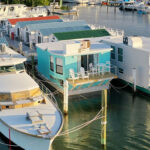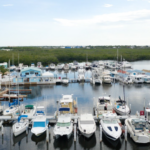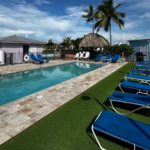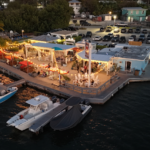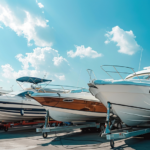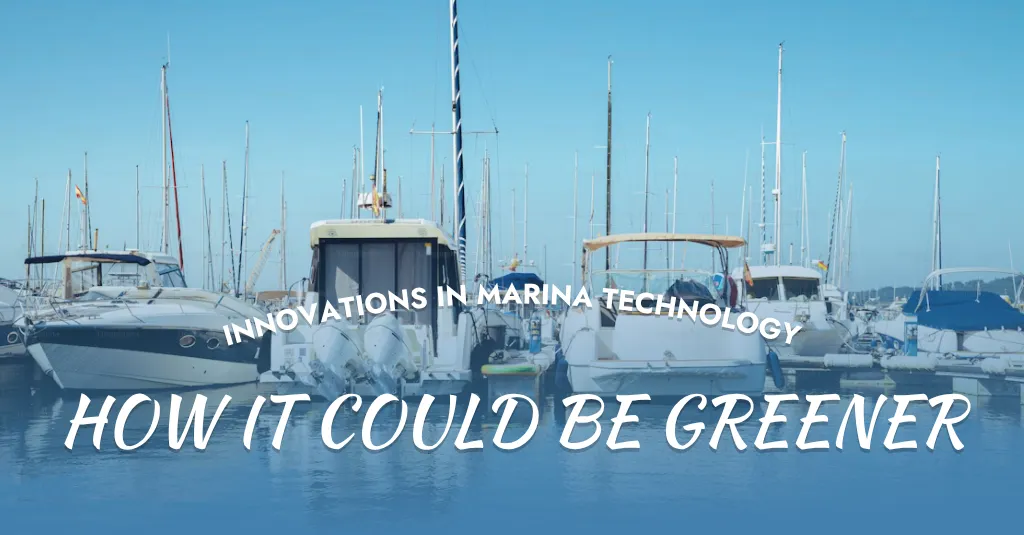
Innovations in Marina Technology: How It Could Be Greener
As climate concerns grow, coastal facilities like marinas are under increasing pressure to reduce their environmental impact. For destinations such as Mangrove Marina, adopting innovative marina technology is no longer optional; it’s a responsibility. Marinas are hubs of recreation, boating, and tourism, but they can also contribute to pollution, waste, and resource strain if not managed carefully. By embracing sustainable marina design and investing in green infrastructure, Mangrove Marina could become a model for eco-conscious boating and coastal stewardship.
This blog explores emerging technologies and practical solutions, from renewable energy in marinas to eco-friendly materials, that could reshape marina operations for a greener future.
Why Marina Technology Matters for Sustainability
Marinas aren’t just places to tie up boats; they are small towns that provide power, water, waste disposal, and transportation. All of these systems have environmental impacts. In the absence of innovative approaches, marinas are likely to be sources of water pollution, habitat destruction, and excessive energy use.
With the introduction of Mangrove Marina and its state-of-the-art marina technology, it could:
- Decrease fossil fuel dependency via solar or hybrid energy solutions.
- Avoid toxic releases with greywater and recycling technology.
- Safer antifouling solutions help preserve marine life.
- Improve durability with sustainable dock and pier materials.
- Set the standard for waste minimization and eco-tourism charm.
Renewable Energy in Marinas: Solar, Wind, and Hybrid Options
Transitioning from old diesel generators is the most effective action marinas can take to have a positive environmental impact.
Solar Power on Docks and Facilities
Solar panels can be installed on roofs, dock shelters, or even on water in the form of floating solar arrays. They can power lights, Wi-Fi, security systems, and electric charging stations for boats. It’s bright, sunny, and solar could be used in areas like the Florida Keys.
Solar-Diesel Hybrid Systems
For now, at least, diesel-dependent operations can benefit from hybrid systems that incorporate solar arrays with fuel-based backup generators. That leads to fewer emissions, less fuel, and dependable service during periods of high demand.
Emerging Wind Options
Small-scale vertical-axis wind turbines, especially in windy coastal areas, can complement solar. Combined, solar and wind can make marinas far less grid-dependent.
Utilizing renewable energy would allow Mangrove Marina to serve as a model for the design of sustainable marina design and save money in the long run.
Greywater, Blackwater, and Recycling Systems
One of the biggest challenges marinas face is water pollution from boats.
Greywater Filtration Systems
Greywater is the wastewater from sinks and showers, which is frequently discharged untreated into local waters. Advanced greywater treatment systems can remove soaps, oils, and other pollutants, resulting in cleaner discharges.
Blackwater Pump-Out Stations
Mangrove Marina has a pump-out system in place, but marina technology improvements can make them more efficient, cutting down on wait times and helping more boaters come into compliance. Automated or mobile pump-out services also promote responsible use.
Recycling Initiatives
Modern marina recycling stations sort plastics, metals, and fishing gear. Digital monitoring can track waste volumes, identify problem areas, and encourage responsible tourism practices.
Together, these systems reduce pollution risks and align Mangrove Marina with best practices in marina infrastructure innovation.
Eco-Friendly Antifouling Methods
Conventional antifouling hull paints leach poisons to stop barnacles and algae from growing on hulls, and poison the sea. Alternatives are emerging:
- Silicone-based coatings: These coatings produce a slick surface that marine fouling cannot adhere to.
- Ultrasound antifouling: Ultrasonic transducers mounted on boats inhibit the growth of marine organisms and do not use chemicals.
- Nanotechnology Coatings: Tough, but not as damaging as the copper-based paints.
Promoting or rewarding the use of green antifoul amongst residents and visitors has great potential to reduce harm in the local environment.
Sustainable Dock and Pier Materials
The building and repair of marina infrastructure requires materials that are as important as those for waste and energy systems.
Options for Eco-Friendly Construction
- Recycled plastic lumber: Strong, low-maintenance, and marine resistant.
- Bamboo composites: Sustainable and naturally water-proof.
- Treated wood alternatives: Safer treatments leach fewer toxins.
Mangrove Marina, by purchasing these materials, could have extended the life of its facilities and avoided future costs and damage to the environment.
Best Practices in Marina Waste Management
Not only sewage but also solid waste, oil residues, and hazardous materials brought along by the maintenance of boats are produced by marina operations.
Key Strategies
- Oil spill response stations contain absorbent booms and kits.
- Hazardous waste collection areas at which you may dispose of paints, batteries, and solvents.
- Smart bins that press the garbage and send alerts when they are full.
- Zero-waste programs encourage boaters to reduce disposables.
When combined with informative signage and staff education training, these systems transform waste management into a visually demonstrated commitment to sustainability.
Digital Tools for Smarter Marina Management
Technology is not just about physical infrastructure. Digital platforms enable Mangrove Marina to monitor energy consumption, waste disposal, and water quality in real time.
- Mobile apps for residents and visitors to report problems, schedule pump outs, or monitor their energy use.
- Water monitoring with a sensor to identify contaminants in the water at an early stage.
- Energy-efficient lighting and other systems are controlled automatically according to occupancy.
By utilizing smart technology, Mangrove Marina can demonstrate that it is leading-edge in efficiency and transparency in sustainable practices.
Community Engagement and Education
No marina technology will have success without the boating community willing to cooperate. Education programs are essential for lasting change, such as
- Boat-maintenance classes that encourage green antifouling and waste disposal.
- Eco-tourism alliances that show off Mangrove Marina’s green credentials.
- Signage and digital advertising to remind visitors what a responsible visitor looks like
Challenges in Implementing Green Technology
Challenges in embracing new marina technology include:
- Expense: Upfront costs for solar, recycling systems, and environmentally friendly infrastructure can be substantial.
- Maintenance: Specialized maintenance is required for green technologies.
- Rates of Adoption: Boat owners may be reluctant to change what they’re used to doing or add costs to their bottom line.
Still, the long-term financial savings, enhanced reputation, and environmental gains are worth the challenges. Forward-thinking marinas around the globe are already demonstrating that these solutions are workable and profitable.
Conclusion: A Blueprint for a Greener Mangrove Marina
The future of boating facilities lies in their recreational and responsible use. At Mangrove Marina, adopting sustainable marina technology and leading in marina infrastructure innovation not only minimizes environmental impact but also attracts eco-conscious clientele and reinforces its mission as a coastal caretaker.
New technologies range from clean energy in marinas to environmentally sustainable materials and enhanced waste management. By bringing these innovations to life, Mangrove Marina can set a new standard in environmentally responsible boating and be a premier destination for adventure-minded and green-conscious individuals.
The tide is turning toward greener marinas. Mangrove Marina can be at the forefront of that change.
FAQs
What are the best renewable energy choices for marinas?
Solar panels and hybrid solar-diesel are the most feasible, with wind turbines being a close second in coastal regions.
How can marinas control the water pollution from boats?
With the addition of high-efficiency pump-out stations, greywater filtration systems, and promoting green boat maintenance, they can.
What green alternatives to conventional antifouling paints exist?
Silicone coatings, ultrasonic antifouling systems, and nanotech coatings are non-toxic options that can achieve good results.
Why is a sustainable dock material needed?
They increase the life of materials, reduce maintenance costs and material degradation, and minimize leaching of toxins into waterways.
What is the importance of community education in marina sustainability?
Education ensures boaters follow environmentally sound practices, which makes the technological investments more meaningful in the long run.

